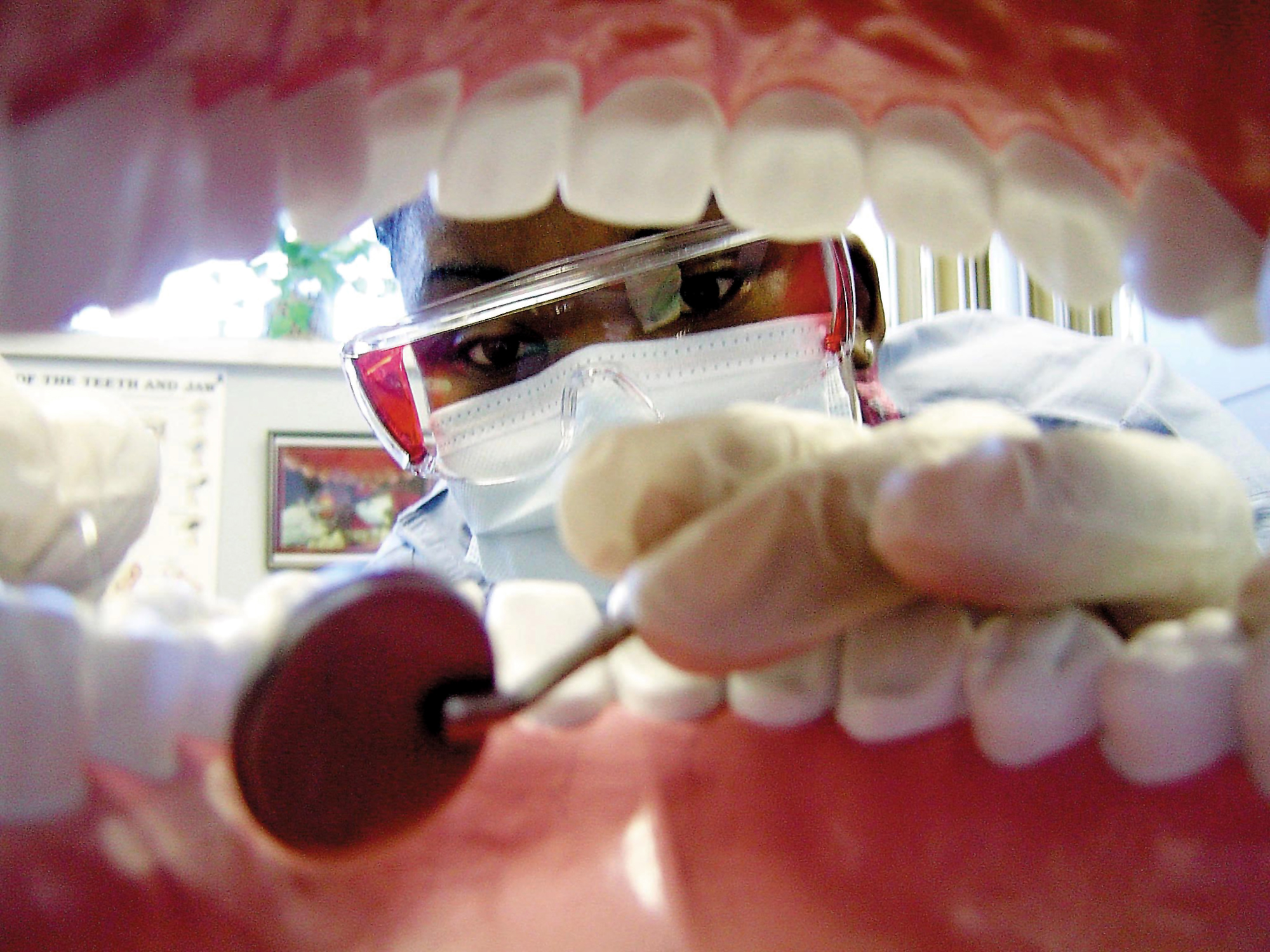Your mouth is one of the worst areas of your body for harbouring bacteria. Most of these 500 or so bacteria won’t harm you if you maintain a healthy oral regime but if you don’t, all kinds of illnesses can develop, as your teeth and gums begin to break down.
The earliest signs of trouble are obvious to your dentist. They will notice cavities in the teeth and receding gums that are caused by gum disease. This is caused by a build-up of plaque – a yellowish substance that sticks to your teeth and gums and causes infection. The bacteria in plaque can attack the enamel in your teeth and create holes. If not caught in time this can lead to periodontal disease which in turn results in teeth becoming loose and dropping out, due to the underlying damage to the bones that support your teeth.

One of the main forms of gum disease is Gingivitis which results in infection and swollen gums. Generally, the gums are dark red in colour rather than a healthy pink and breath can smell bad, known as halitosis. It is caused by particles of food getting stuck between the teeth and giving off, amongst other chemicals, hydrogen sulphide. Regular flossing can help to remove these particles and should be done every day.
If you have gum disease then harmful bacteria can enter your bloodstream via your mouth and depending on your immune system, can create many medical conditions and problems, which can actually reduce your immune system’s ability to protect you from serious infections.
Consumer
Notice: This
is an affiliate ad supported blog. That means if you buy something
from a link or ad on this site, or based on my recommendation, either
expressed or implied, I may get paid an affiliate commission. Helps
to pay the bills.
ght in time this can lead to
periodontal disease and you could find your teeth dropping out
because of underlying damage to the bones that support your teeth.
One
of the main forms of gum disease is Gingivitis
which results in infection and sore a swollen gums. Generally the
gums are dark red in colour rather than a healthy pink and the breath
can small bad. This is known as halitosis and it is caused by
particles of food getting stuck between the teeth and giving off
hydrogen sulphide amongst other chemicals. Regular flossing can help
to remove these particles and you should floss your teeth every day.
If
you have gum disease then it is highly likely that harmful bacteria
can enter your bloodstream via your mouth and this can cause all
kinds of medical conditions and problems, depending on how good your
immune system is working. Certain medical conditions and treatments
can reduce your immune systems ability to protect you from serious
infections. For example, chemotherapy for cancer is known to reduce
the immune systems ability to fight infection.
Here
are just some of the medical conditions that have proven links to gum
disease and bad oral hygiene.
Heart
disease – due to narrowing of the arteries caused by a build-up
of bacteria and plaque. Also, as the bacteria has a clotting agent
this can cause both heart attacked and stroke.
Endocarditis
– caused by bacteria getting into the inner lining of the heart and
valves causing serious infection of the heart.
is really quite simple to improve your
dental hygiene.
All
you need to do, as well as visiting your dentist twice a year, is to
brush your teeth and gums at least twice a day and floss regularly.
Use mouthwash to help keep bacteria and bad breath at bay, avoid
sugary foods and try to give up smoking.
Surely
it's worth it for a healthier future!

No comments:
Post a Comment
Please feel free to add your comments here. No spam please!